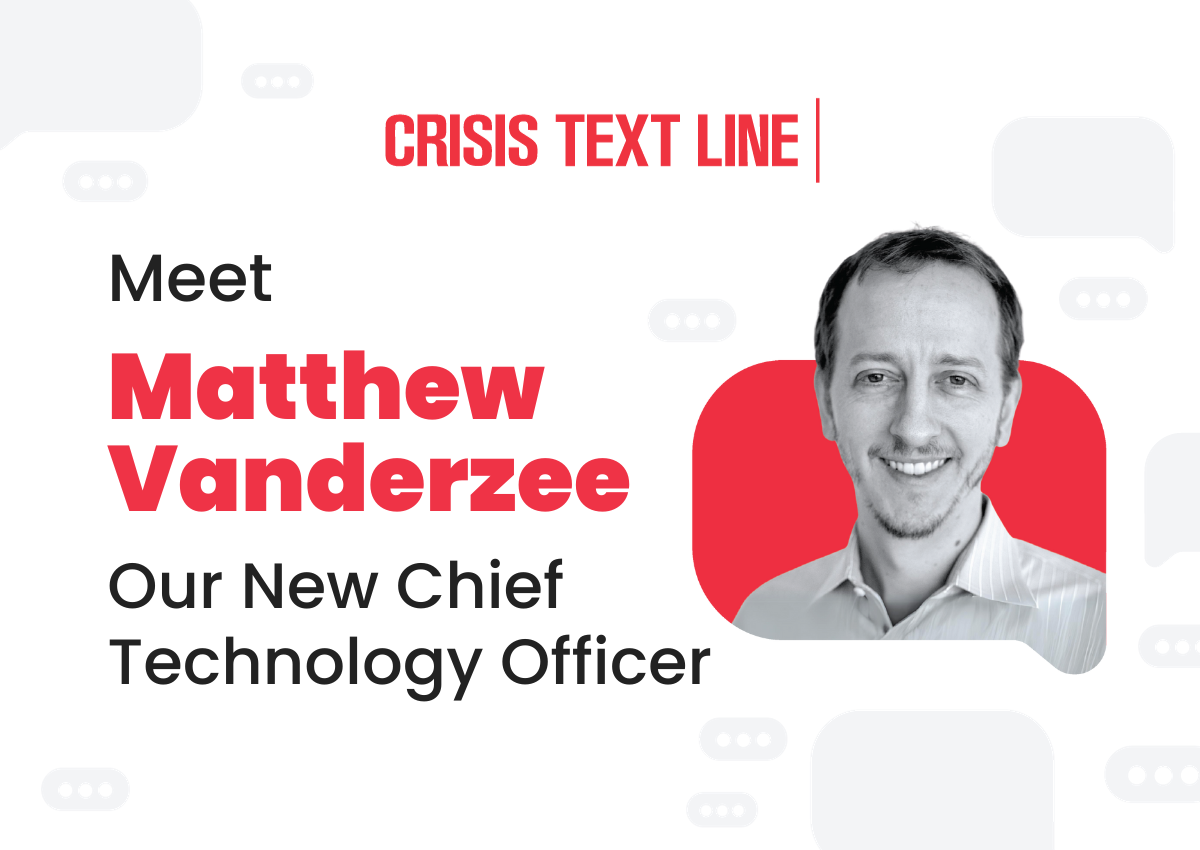Meet Crisis Text Line’s New Chief Technology Officer

Q: What brought you to Crisis Text Line?
A: Crisis Text Line is an amazing organization whose work is directly impacting people in need, every day. It is truly energizing to have the opportunity to apply my technology background to such an important global challenge. And to be able to build technology that is facilitating real humanity – helping create an empathetic world where nobody feels alone – is hugely rewarding.
Q: What is your overall technology strategy for the organization, and how does it align with the nonprofit’s mission?
A: Our main focus is data-driven innovation for our national service and global scale. As the pioneer and market leader in text-based mental health support, Crisis Text Line is uniquely positioned to facilitate a worldwide network of people helping people in need.
Q: Can you share an example of how your team has introduced innovative technology solutions to address a specific challenge?
A: Absolutely! One of the key goals in delivering high quality crisis support is preparing our volunteers for the challenges of helping individuals in need. Sometimes, this can be stressful for our volunteers since the person at the other end of the conversation could be in the middle of a major crisis. To help prepare our volunteers for live support, we’ve built a Generative AI-based training program that simulates real conversations. By leveraging modern conversational technology, this program will help volunteers get used to the experience of supporting someone in need, so that they are well prepared to help people where they are.
Q: How do you ensure that technology solutions are accessible and inclusive, considering diverse user needs?
A: This is a critical dimension of the mental health industry: it is absolutely not a one-size-fits-all type of experience. Our platform is built from the ground up to be a configurable experience to ensure it supports our diverse user base. This is particularly relevant as we support a global audience via our partners. Our adaptive system is tuned for each country, region, and community. This ensures that each user gets the accessible support they need. We also support multiple languages at the same time such as French and English in Canada and Spanish and English in the US to increase access to nonjudgmental mental health support and resources.
Q: What do you have planned for 2024?
A: 2024 will be a transformative year for us. The final stage of our rearchitecture efforts will land as our next generation conversation platform goes live in 2024. This new platform will handle much greater scale, and accelerate our US operations and those of our international partners. With this in place, we will be ready to roll out our technology broadly to more countries and partners, making it possible to help many more people in need around the globe.

